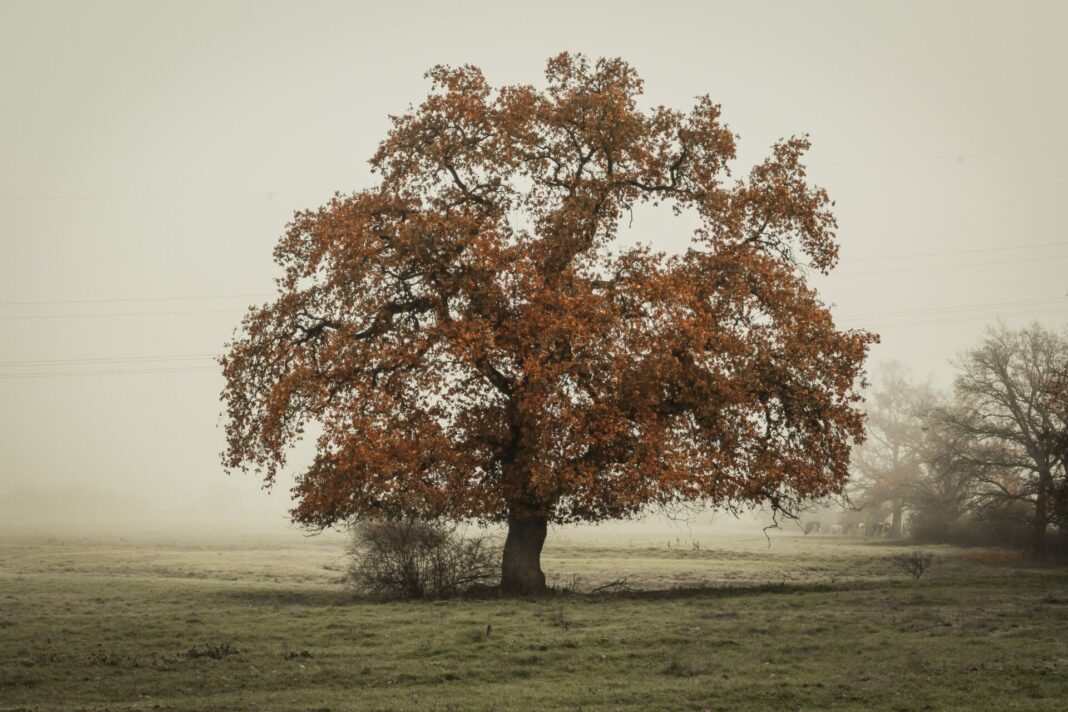Unity, ME. In moving to Maine to teach at a small, environmentally-focused college, I was amused to learn the expression “wicked good.” In the expression, popular from Boston to points north, “wicked” means “very,” and its origin is obscure, despite several popular theories. With no irony intended, this time of year I’ll hear “Halloween is traditionally a wicked good time in our town.” Given that observance of this holiday often invites a mockery of symbols of evil, the expression seems almost fitting.
Philosopher Alasdair MacIntyre gave a keynote address a few years ago titled, “Common Goods, Frequent Evils.” I will, like some mischievous sophomoric poltergeist (paraphrasa-geist?), crib freely from it for this meditation.
Among the wicked goods we cherish, we can identify individual goods and common goods. Thus, the pleasure you take in a candy bar from the dean’s office Halloween jar and that I take in pumpkin muffins from the faculty assistant’s basket are individual goods. In contrast, the goods we can only achieve working in cooperation with others in a band, a team, a workplace, a family, or our local community are common goods. We can also identify public goods that support our individual and common goods such as roads, schools, the sheriff’s deputies whose highly visible presence on Halloween keeps the traffic slow enough for the little ghosts and goblins who are trick or treating. Public goods also include the clean air and clean water protected by many alums from my college. These public goods, often mistaken for common goods, are cooperatively achieved individual goods that support the common good but are not common goods by the richer traditional definition.
Philosophers Aristotle and Aquinas advise that the pursuit of common goods is essential to our individual good. To become genuinely human we must live in community and deliberate with others about common and public goods. We only achieve our ends as rational animals by exercising our rational powers through deliberation with others. Anything less and we are more orc than human. “What we deliberate about,” says MacIntyre, following Aristotle, “is the good of our particular community, a good not peculiarly yours or mine but its and ours.” For Aquinas, this deliberation must assume that individual goods and the common goods of one’s community are ordered to the Infinite Good in itself, which for Aquinas was God.
The evils of climate change, biodiversity loss, and of soil and water contamination with forever chemicals are obvious to my students. Just as insidious is growing inequality, the proletarianizing of the middle class, and failing health and educational systems.
One approach to addressing these ills is to make sure our students have the skills to compete their way into the top 20%, perhaps with a job that provides a sense of purpose. This our educators can surely do. But moving anyone to the top 20%, even through merit, means someone else gets bumped down. And many jobs that put us in the top 20% have little effect on fostering common and public goods.
So what else does education have to offer to students? In addition to clawing to the top of the heap and avoiding the specter of becoming a cog in the economic machine, we also ask our students to step outside today’s cyborg society long enough to reflect on the entire modern neo-liberal enterprise. If human society has the resources and technical solutions to solve environmental problems yet we fail to employ them adequately, and if we have plenty of wealth yet cannot distribute enough opportunities and resources to all for at least a frugal, healthy existence, then it may be the system itself and its foundational assumptions that need to be examined.
Is our increasingly dystopian situation inevitably determined? Do the elites in politics, economics, finance, technology, and academia have it right that we have no choice but to accept disruptive technologies, globalism, and a consumer society based on obsolescence and fear of being left out? Was Hobbes right that humans are motivated solely by self-regarding rather than other-regarding desires and therefore we require the violent monster Leviathan to hold us in check? Was Locke correct that freedom is essentially a consumer freedom ordered to no higher good than our choice to scratch an itch like Caliban on Corfu? And is the best alternative to this nihilistic hedonism really a set of moralistic rules imposed by whomever can gain enough power to impose them?
MacIntyre says no. The foundation for the good life relies on a better understanding of evil and its sources, and a much better understanding of the human being.
First, we need to learn from Augustine and Aquinas that only the good truly exists. As MacIntyre puts it, “Evil is intelligible only as a defect, a lack, or a failure of something that were it functioning well would be constitutive of goodness. Evil in human agents can only be understood as a failure or defectiveness in our directedness to the common good.” Frequent evils may even result from discussions of the common good if the structure of such discussions fails to bring out the extent to which our priorities are actually designed to benefit ourselves and our kind at the expense of others.
Second, we learn that human beings are not the atomistic individuals that Locke and others, under the spell of the successes of Newtonian physics, taught us to think of ourselves. We are inherently relational beings, and we only develop our full potential as humans through deliberation with others for the good of our community as an organic whole.
Third, given that there are no objective places to stand to judge competing moralities, we grow as humans by practicing and habitually acquiring several important virtues, virtues discovered only by reflection on actual practice rather than through an abstract moralism or starting with philosophical precepts. In MacIntyre’s words, the key virtues for collaborative deliberation on the common good are “temperance—so self or group-interested desires do not unduly influence decision making, courage to withstand the pressure of this or that sectional interest against the common good, justice so that each community and each part of the community receives its due, and prudence in setting priorities for using available resources and opportunities.” Without cultivation of these virtues, we cannot successfully share in the governance of our various communities. Making inclusive, informed deliberation a public priority will require restructuring our systems of power.
The spirit of community that arises from festivals such as Halloween is a common good. I suggest that it is also a great time to practice the virtues of shared deliberation at all levels—from organizing in the residence hall floor and the classroom, to planning activities at the town’s community center. Doing so we will grow in the virtues on a personal level: “justice, so that we know what we owe to others, courage so that we know which risks to take, temperance so that we are not the victims of our own desires and fantasies, and prudence so that we can apply general precepts to individual cases.”
May the orcs you meet always have rubber teeth, your werewolves always love to have their bellies rubbed, and your toothbrush never fail! I wish you a “wicked good” All Hallows Eve!
Below, see Alasdair MacIntyre’s “Common Goods and Frequent Evils” presentation at the Common Good as a Common Project Conference, at the University of Notre Dame, March 26-28, 2017.
Also see MacIntyre’s “Moral Relativisms Reconsidered” presentation at the To What End? Conference, University of Notre Dame on July 26, 2019.













Great reflection Douglas.
That distinction between public and common goods is really important and useful; thanks for bringing it out.
Comments are closed.